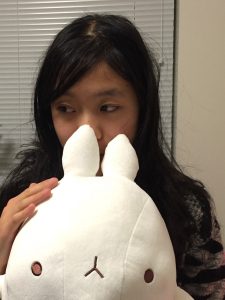 Lena Ji (SMALL ’15) is a second-year graduate student studying algebraic geometry at Princeton. She was sort of clueless when applying to REUs and hopes this post can be somewhat helpful to anyone else in the same position.
Lena Ji (SMALL ’15) is a second-year graduate student studying algebraic geometry at Princeton. She was sort of clueless when applying to REUs and hopes this post can be somewhat helpful to anyone else in the same position.
[Editor’s Note: Lena is one of the smartest mathematicians I know, no matter what she tells you.]
How to Apply to Math REUs
For undergraduates potentially interested in going to graduate school for math or just curious about math research in general, REUs are a great way to gain research experience. I attended two REUs in the past and had a great experience, so I’ve put together this page in hopes that it might be helpful to anyone who’s considering applying. A lot of inspiration for this page came from Alex Lang’s NSF GRFP page, which is an excellent resource if you are a junior and plan to apply for the NSF next year!
Contents:
- What is an REU?
- Outline of Application Process and Components
- Factors to Consider When Applying
- General Tips
- Recommendation Letters
- Personal/Research Statement
- What to Do After You’ve Been Accepted
Disclaimer: All information on this page is based on my limited personal experience, and I make no claims to objective accuracy. If you disagree with anything I’ve written or think I’m wrong about something, please let me know! Any feedback is welcome, and if you want to share personal statements you’ve used in the past that would be super appreciated!
